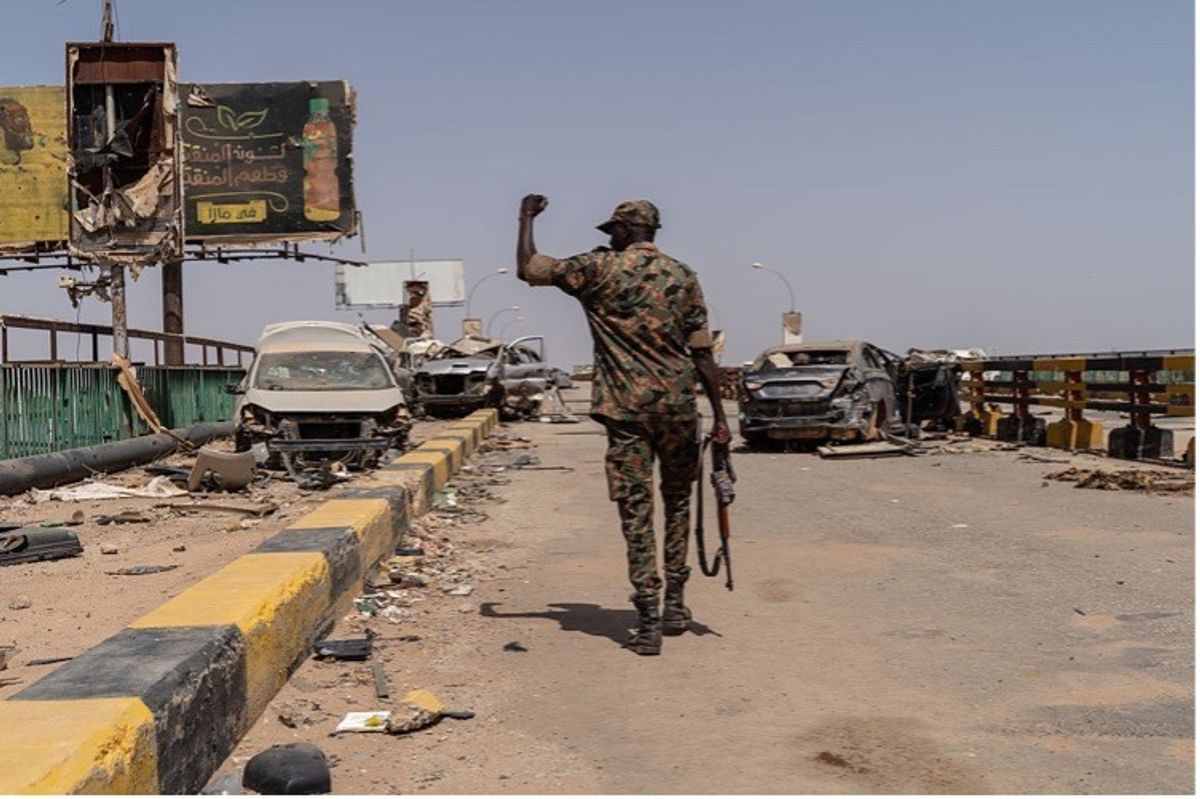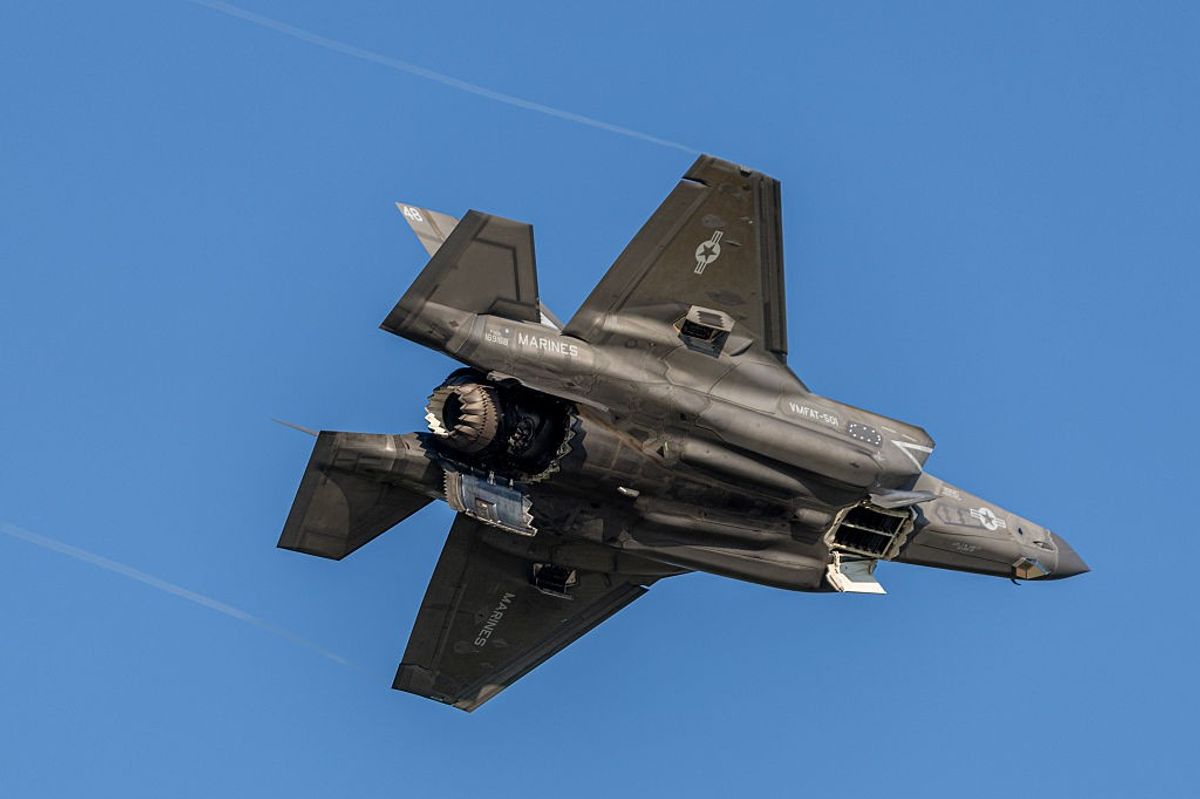EXPERT INTERVIEWS – Turkey is being rocked by the largest-scale protests it has seen in more than a decade. Hundreds of thousands of people have taken to the streets across the country in response to the arrest of Istanbul Mayor Ekrem Imamoglu, the chief political rival of President Recep Tayyip Erdogan. Imamoglu was arrested on March 19 on corruption and terrorism charges — days before he was due to be selected as the 2028 presidential nominee for the opposition Republican People’s Party (CHP). He and his supporters have denied the allegations and said they were politically motivated.
While the arrest has drawn criticism from outside Turkey, and the protests are the largest since the 2013 Gezi Park demonstrations, it’s not clear that they will impact the U.S.-Turkey relationship. Three days before Imamoglu’s arrest, President Donald Trump and Erdogan spoke on the phone about issues ranging from the war in Ukraine to Syria to counterterrorism, and multiple reports suggested Erdogan was seeking a late-April visit to the White House.
After Imamolgu was detained, Secretary of State Marco Rubio expressed concern to his Turkish counterpart, Hakan Fidan, about the arrest – but Rubio also went out of his way to acknowledge progress in U.S.-Turkey trade relations and encourage further strengthening of economic ties.
Meanwhile, just as the protests were spreading all across Turkey, Trump’s special envoy, Steve Witkoff, told an interviewer, “The president had a great conversation with Erdogan a couple of days ago. There’s just a lot of good, positive news coming out of Turkey.” And on March 25, nearly a week after Mayor Imamoglu’s arrest, President Trump called Turkey a “good place” and President Erdogan a “good leader.”
Turkey is a member of NATO and a critical ally for the U.S. when it comes to defense and security matters in the region. For its part, Turkey has been pressing the U.S. to lift sanctions that have kept Turkey frozen out of the U.S. F-35 fighter jet program.
The country has struck an unusual balance in terms of the war in Ukraine – having supplied weapons to the Ukrainian resistance while maintaining a close diplomatic and commercial relationship with Russia. Erdogan has said that Turkey would be the “ideal host” for peace talks to end the war.
Turkey also holds significant influence in Syria, and Erdogan has emphasized his desire to support the new government following the fall of the Syrian dictator Bashar al-Assad. Turkey is also a partner in the fight against the Islamic State, though it has opposed U.S. support for the Syrian Democratic Forces (SDF) in that campaign, as Ankara views the Syrian Kurdish militia as a terrorist group.
Against this complex backdrop, The Cipher Brief spoke with Ambassador James Jeffrey, who served as U.S. ambassador to Turkey and Iraq, and to Glenn Corn, a former Senior CIA Officer with considerable experience in Turkey, about the stakes for Trump and Erdogan – and their two countries – as they map a way forward for the relationship. Ambassador Jeffrey spoke with Cipher Brief Managing Editor Tom Nagorski; Corn spoke with Cipher Brief Reporter Alison Spann. Their conversations have been edited for length and clarity. You can also watch the full discussions on The Cipher Brief’s YouTube channel.
THE EXPERTS
Ambassador Jeffrey: Erdogan and the people around him all are realpolitik in their outlook. He's got the messy Middle East to his south and he's got Russia and NATO to his north and northwest. But he's in a good position. Turkey is a G20 country, one of the top 15 economies on most days. It has good energy relations with Russia, some with Iran, although he sees himself, as do most Turks, as competitors to both. They're quite effective these days in the Middle East, having rekindled relations with the Gulf States, notably Saudi Arabia and the Emiratis, who bailed Erdogan out financially a couple of years ago.
Turkey is, in most respects – although Poland is creeping up on them – the second largest and second most powerful military force in NATO, after us. They've played a crucial role in the Ukraine war by restricting Russian reinforcements into the Black Sea. That gives Erdogan the leverage to also reach out to the Russians. They still import gas. Their banks still play footsie with the Russian banks, but they're also very supportive of Ukraine.
Interestingly, Erdogan has long advocated for the policy that President Trump seems to be trying to pitch to Zelensky, which is: This war makes no sense. It's a stalemate. You're not going to get back those territories that Russia has conquered. Erdogan is unhappy about Crimea going to the Russians because of relations with the Crimean Tatars who are part of the Ottoman Empire and religiously close to the Turks. But they can live with that. What they can't live with is Ukraine collapsing or even the Ukrainian coastline, including Odesa, falling to the Russians. The Black Sea is Turkey's near abroad, and they will work with us and with NATO to ensure that Ukraine doesn't be defeated.
On the other hand, they don't really see a future for Ukraine in NATO. They're willing to contribute, under the right conditions, peacekeepers to a post-ceasefire settlement. Watch that spot because it's something that Erdogan pitched, at least indirectly, to President Trump in their [March 16] call. And there's a lot of possible synergy between Washington and Ankara on this.
The Middle East is more mixed. Turkey is an effective counter to Iran in Syria and Iraq, particularly in Northern Iraq among the Kurds who have a good relationship with Erdogan, and in Azerbaijan. Erdogan is also more confident in those areas because he's working hard to solve his own internal Turkish-Kurdish problem by rapprochement with the PKK [the Kurdistan Workers Party]. This has pretty dramatic, mainly positive, effects on not only the domestic situation in Turkey, but also the region.
The one downside is Israel in general, and in particular, Gaza and Syria. The Turkish population, like Arab populations, have been aghast at the high civilian casualties in Gaza. They do not understand what Israel is doing. Turkey is actually an effective democracy, unlike most Arab states, and therefore Erdogan has to pay attention to that, particularly as it's mainly his base, the more devout Muslims among the Turkish population, who feel so strongly. So what has long been a good relationship with Israel right now is down the toilet, so to speak.
The main way that this is being played out is in Syria. That's the other issue that Erdogan raised with President Trump. Erdogan, of course, is interested in the SDF [Syrian Democratic Forces] partners in Syria in the fight against ISIS, who are at the same time the local branch of the PKK. But because Erdogan is working on a ceasefire with the PKK overall, he's willing to let the Syrian Democratic Forces, the Kurds in Syria, work out a deal with [Ahmed] al-Sharaa, the new leader of Syria. And that's looking promising.
Everyone needs a good nightcap. Ours happens to come in the form of a M-F newsletter that provides the best way to unwind while staying up to speed on national security. Sign up today.
The bigger problem right now, with the U.S. in the middle, is between Israel and Turkey. The Turks and the Israelis both see Iran as the biggest threat to the region, and the second biggest threat to the region is Sunni Jihadist extremism. They have a commonality of interest on paper, but Gaza has soiled the sheets in the bilateral relationship, unfortunately.
This is unfortunate because they both have an interest in a stable Syria, keeping Iran out and keeping the remnants of the Islamic State and other jihadist movements down. But the natural tendency in a realpolitik world, and that defines the world that both Netanyahu and Erdogan think they're in, when you get two powers that have somewhat conflicting worldviews rubbing up against each other in a vacuum, you've got trouble and that's what we have right now.
That's something that Washington normally would play the honest broker on. And we did so in the first Trump administration, and indirectly and in a kind of half-hearted way in the Biden administration. But right now, this Trump administration is not really focused on Syria. They've shown little interest, attention or high-level involvement. And the result is that the Israelis have tremendous sway in Washington over perceptions of Syria – that al-Sharaa, the current president of Syria with his Hayat al-Sham terrorist background, and the Turks with Erdogan as the Islamic leader, are ever more a threat to Israel.
The problem is that the more you act on this threat, and the Israelis are doing this by moving forces forward and doing some bombings of former Assad military holdings all throughout the south of the country, is that you create a threat even if one isn't there. So again, this is something that Washington will have to look out for. It's something that Erdogan raised in his conversation with the president.
The other issue is military. The Turks want to be out from under the U.S. sanctions imposed for having bought the S-400 system [from Russia]. They want to continue with the big F-16 sale [with the U.S.] that they broke a couple of years ago in return for the vote on Sweden entering NATO. And they would actually like to get back into the F-35 program. So all in all, with Trump, they have an American leader who is more sympathetic to Erdogan, and Erdogan's rather authoritarian way of governing, than Joe Biden or Barack Obama were. But nonetheless, there are some strains in the relationship, mainly because of the Israeli factor.
Erdogan needs a win [from a meeting with Trump]. And the win would be on one of these military issues, because they're what the Turks refer to as remaining irritants in the relationship. The Turks put a great deal of emphasis on them, like President Trump puts great emphasis on balances of trade. I would also advise him to press Washington to use Turkey, and consult with Turkey, on going forward with Putin on Ukraine, given the key role Turkey has played in its good relations with both Zelensky and Putin, and the fact that Turkey is a powerful player.
And then on Syria, urge Trump to get more involved. Basically say, Hey, help me in stabilizing the country and work with the Israelis — we’re not their enemy.
Despite the good relationship between Erdogan and Trump, it has had explosive moments. [My advice to Trump would be,] manage the meeting carefully in terms of atmospherics. They should be good, but they can go south quicker than you can say “Zelensky.” Secondly, hear the man out. He's an ally. He won't nag you like the Western Europeans do on your domestic actions. And he has a realistic view of Iran, a realistic view of Russia, and he will probably ask you to help on Israel in one way or another.
Corn: It's a very complicated relationship, which goes back many years. Turkey views the United States as an ally, as a partner, but a partner with whom we have many issues we don't agree on. I think that the Turks want to have more say in the relationship. Most Turks I know believe that Turkey is not given the credit it deserves for things it does for NATO and in support of U.S. interests. They believe that there is an anti-Turkish lobby, which is very strong in the United States. As one Turkish official once explained to me, it's a very emotional relationship because the Turks really want to have a close relationship with the U.S. because we have a lot in common. But sometimes they take things that the U.S. does as slights, which hurt them deeply and emotionally.
For example, during the previous administration, even people in the Turkish opposition, not just Erdogan's party, felt that the U.S. president and the U.S. government was not giving them enough attention. One of the things that really upset people was there were no real visits to the White House; and there was no visit by the U.S. president to Turkey. President Biden used the term Armenian genocide, which is a very sensitive issue for the Turks. Most Turks do not believe it was a genocide; they refer to it as the so-called genocide, in Turkish. So there are a number of things that remain sensitive.
I think it's a smart move on the part of the White House and the president [to invite Erdogan for a meeting]. That sends a very good message to the Turkish people. President Erdogan will be pleased with it. The extension of an invitation is important.
I think that President Erdogan and most Turks are supportive of President Trump. They were hoping he was going to win the election. President Trump and President Erdogan had a good relationship during President Trump's first term, although there were some bilateral irritants between the administrations. But overall, I think there was a positive relationship.
Turkey is one of the countries in NATO which has been carrying its load on the defense side. They are very capable militarily and have very capable intelligence and security services. This administration should be looking to Turkey to share some of the burden with us in regions of the world that are very important.
Experts are gathering at The Cipher Brief’s NatSecEDGE conference June 5-6 in Austin, TX to talk about the future of war. Be a part of the conversation.
I would hope that the administration would look to the Turks to help us put pressure on Putin. One of the things that the Turks could do is pull back on some of the trade and some of the commerce they're doing with the Russians. The Turks could play a role in any kind of future peacekeeping force in Ukraine. The Turks have maintained a good relationship with both Kyiv and Moscow throughout this conflict. President Erdogan has wanted to be seen as a peacemaker. And depending on how things go with President Trump, President Putin and President Zelensky, maybe the Turks could also play a role in helping to facilitate some of the negotiations. If you remember back in 2022, the first round of ceasefire negotiations were held in Istanbul, hosted by President Erdogan and the Turks. So there's definitely some room there for the Turks to help us and help both the Ukrainians and, I would argue, the Russians, who need to get out of this war because it's not helping Russia.
In Syria, I would say the Turks probably have the most influence in Syria right now. The Syrian Democratic Forces is the Kurdish group in Syria which has received support from the U.S. since 2014 in the counter-ISIS fight, and the Turks are not happy with that. They view the SDF as being the same thing as the Kurdistan workers party, the PKK. They want that support to end.
I'm sure there are going to be ongoing discussions between Ankara and Washington, with Ankara lobbying for the U.S. to end that support. If the administration is going to consider doing that, which is a very sensitive issue here in the States for a number of reasons, then I think we need to make sure that the Turks are going to help us continue to conduct the counter-ISIS fight in Syria, in the Middle East, which I think the Turks would consider doing. In fact, they've been very good partners for us. They don't get a lot of attention, but they have done some very good things on the counter-ISIS side.
I think President Trump and the administration should look to partner with the Turks to maintain some positive developments that have happened in Syria since the end of last year – I'm specifically talking about the removal of the Assad regime and the undermining of Iranian and Russian influence in Syria. Syria has a lot of problems right now, and the Turks can play a positive role in helping us to maintain stability there. We can't do it without the Turks. And of course, the other part of the equation is the Israelis. One of the things the administration is going to have to do is help bridge Ankara and Tel Aviv. Right now, there is a very serious divide in their bilateral relations.
There's a long list of areas where the Turks could be very important partners for us. Libya – where the Turks have a presence, have influence, where they push back on the Russians and Russian allies in Libya; the South Caucasus — right now, the president of Azerbaijan and the prime minister of Armenia are very close to signing a peace agreement and establishing diplomatic relations, and the Turks have been key in moving to this point after 30-plus years of a state of war between Armenia and Azerbaijan. The Turks could play a very important and continued positive role there. And I think the Turks can play a very positive role in helping us to influence the Iranian regime not to move forward with their plans to build a nuclear weapon – or their possible plans – and limiting Iranian extremist influence in the Middle East.
And finally, there are a number of areas where the Turks can be very important partners in trade and commerce, buying US goods and being a market for the U.S. It's not just geopolitical, military or security; there's also financial gains to be made by continuing to grow the relationship.
Read more expert-driven national security insights, perspective and analysis in The Cipher Brief















